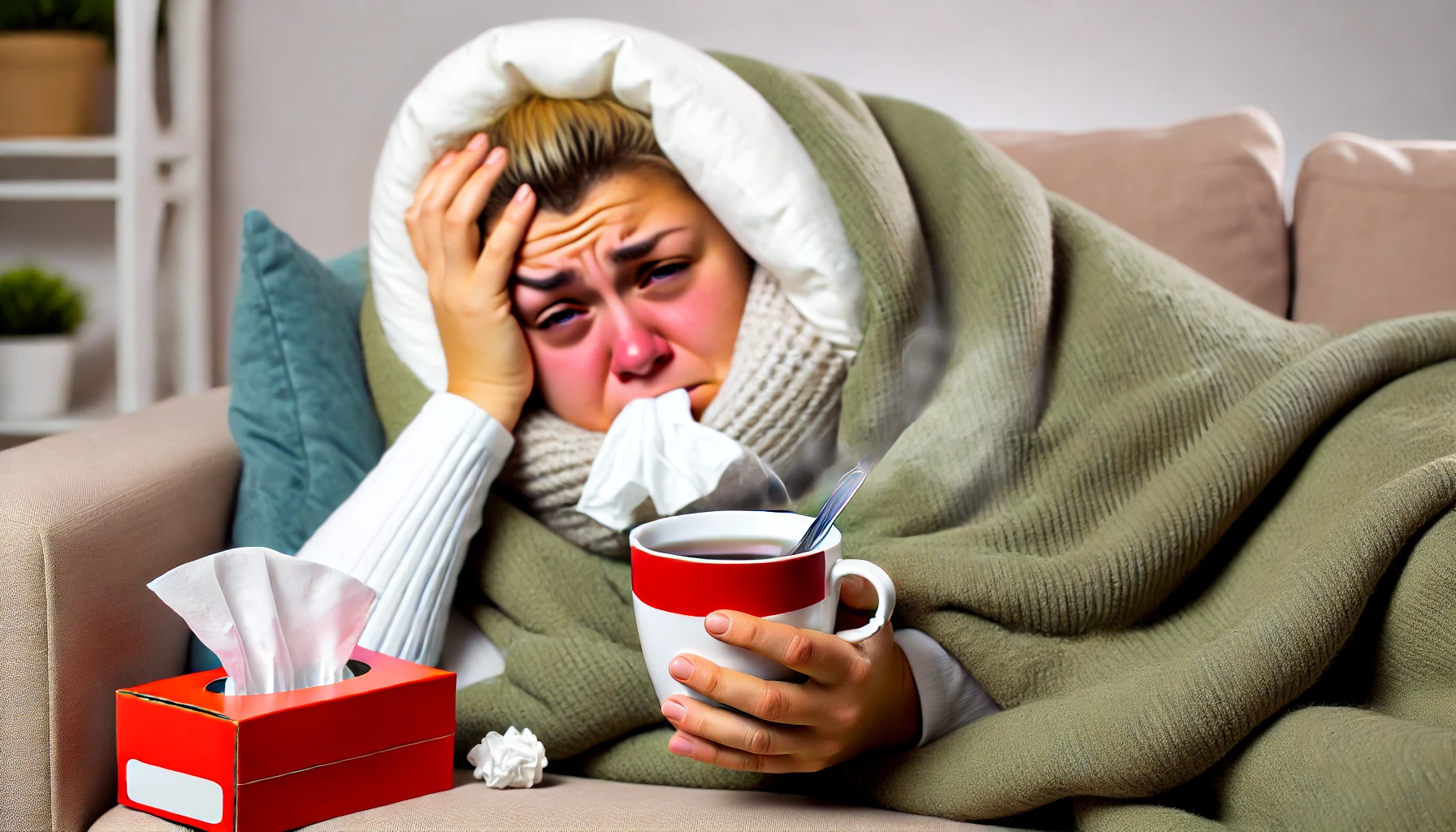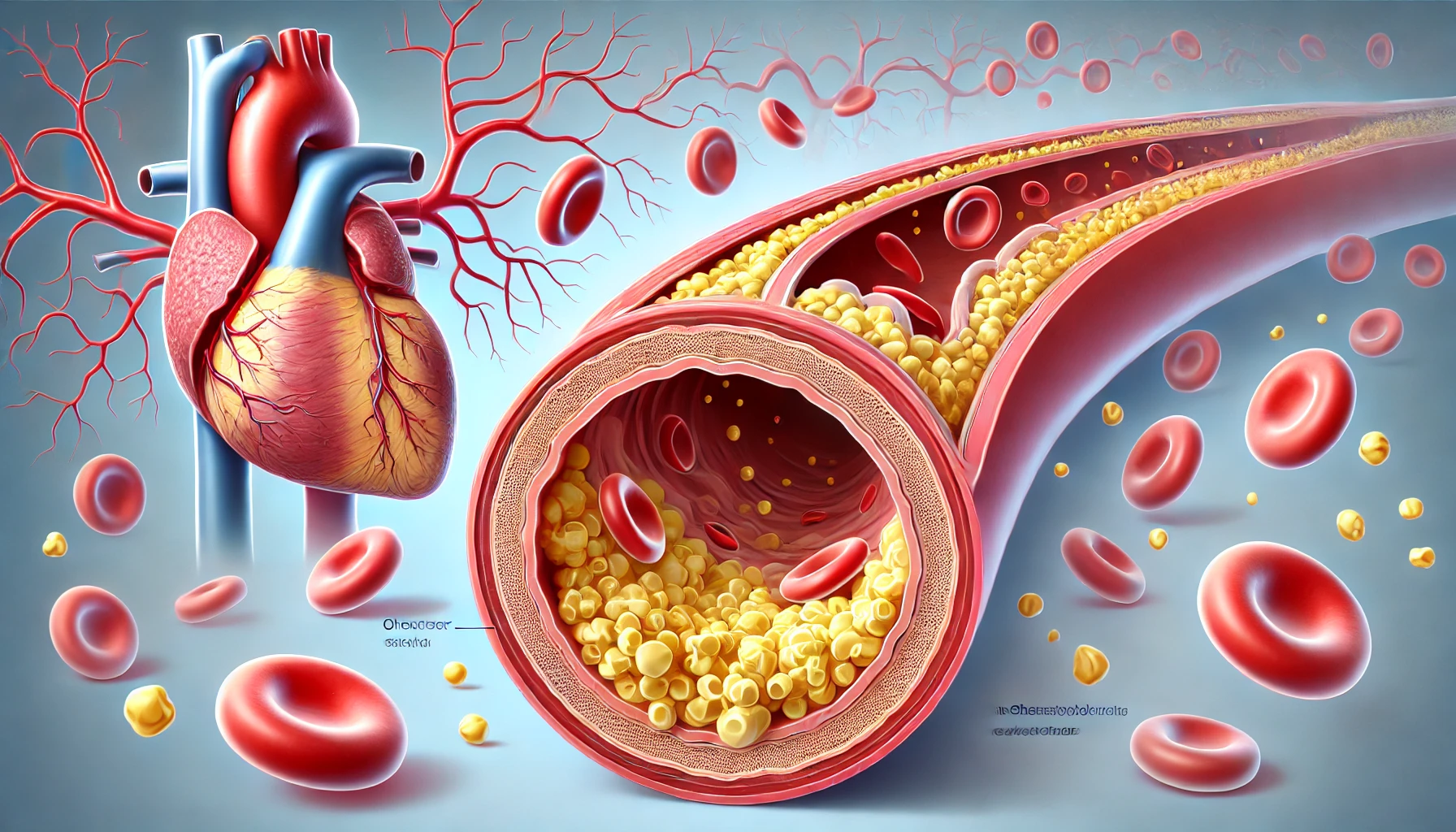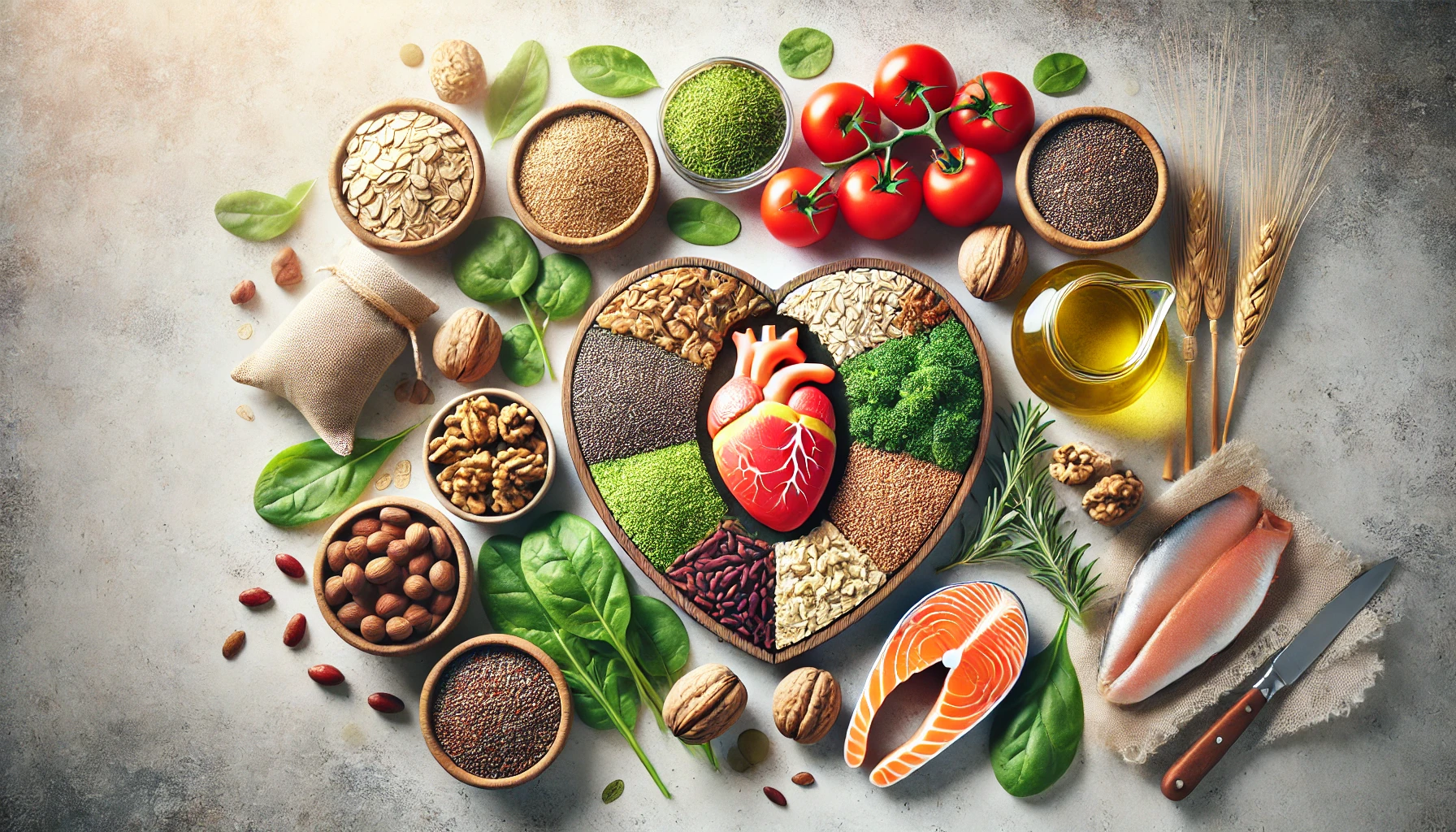
Important Points:
- Understanding cholesterol and why it’s important to keep it balanced
- Diet changes to lower cholesterol naturally
- Lifestyle tips to reduce cholesterol levels without medication
- Natural supplements and practices that may support heart health
Understanding Cholesterol and Why It Matters
What is Cholesterol?
Cholesterol is a waxy substance your body needs for cell production, hormone synthesis, and vitamin D formation. However, high levels of LDL (Low-Density Lipoprotein or “bad” cholesterol) can lead to plaque buildup in the arteries, increasing the risk of heart disease and stroke. HDL (High-Density Lipoprotein or “good” cholesterol) helps remove excess cholesterol from the bloodstream, supporting cardiovascular health. By focusing on lifestyle and dietary changes, it’s possible to lower LDL levels and raise HDL, reducing cholesterol naturally without medication.
Dietary Tips to Lower Cholesterol Naturally
- Eat More Fiber-Rich Foods
- Focus on Soluble Fiber: Foods like oats, barley, beans, lentils, and certain fruits (e.g., apples, berries) contain soluble fiber, which binds cholesterol in the digestive tract and helps remove it from the body.
- Daily Goal: Aim for 25–30 grams of fiber daily, with at least 5–10 grams of soluble fiber. This can lead to a significant drop in LDL cholesterol over time.
- Choose Healthy Fats Over Saturated Fats
- Opt for Monounsaturated and Polyunsaturated Fats: Foods like olive oil, avocados, nuts, and fatty fish contain healthy fats that help lower LDL and raise HDL cholesterol.
- Limit Saturated Fats: Reduce intake of saturated fats found in red meat, butter, and full-fat dairy products, which can raise LDL cholesterol levels.
- Tip: Replace butter with olive oil for cooking and use avocados or nuts as snacks to increase heart-healthy fats.
- Avoid Trans Fats Entirely
- Where They’re Found: Trans fats are often found in processed foods, baked goods, and fried items. Look for “partially hydrogenated oils” on labels, and avoid these products to protect heart health.
- Why They Matter: Trans fats not only raise LDL cholesterol but also lower HDL cholesterol, making them particularly harmful for cardiovascular health.
- Include Omega-3 Fatty Acids from Fish and Seeds
- Sources of Omega-3s: Fatty fish such as salmon, sardines, and trout are high in omega-3 fatty acids, which can reduce triglycerides and support HDL cholesterol levels.
- Plant-Based Options: If you’re plant-based, flaxseeds, chia seeds, and walnuts are rich in alpha-linolenic acid (ALA), a type of omega-3 that offers heart benefits.
- Tip: Aim for at least two servings of fatty fish per week or add a tablespoon of flaxseed to smoothies or oatmeal for extra omega-3s.
- Eat More Plant-Based Foods
- Why Plant-Based Helps: Plant-based diets are naturally lower in saturated fats and often higher in fiber, antioxidants, and nutrients that support heart health.
- Protein Sources: Incorporate more beans, lentils, tofu, and other legumes in place of red meat or processed meats, which can help lower cholesterol naturally.
- Tip: Try a “Meatless Monday” approach or aim for a few plant-based meals each week to reduce cholesterol.
- Add Foods Rich in Plant Sterols and Stanols
- What They Are: Plant sterols and stanols are naturally occurring compounds that reduce cholesterol absorption in the gut. They are found in small amounts in fruits, vegetables, nuts, and seeds.
- Fortified Options: Many foods, such as margarine, yogurt, and orange juice, are fortified with plant sterols and stanols to help lower LDL cholesterol.
- Tip: Aim for about 2 grams of plant sterols daily to see a positive impact on cholesterol levels.
Lifestyle Changes to Lower Cholesterol Without Medication
- Exercise Regularly
- Why Exercise Matters: Physical activity can improve HDL levels, reduce LDL, and help with weight management, all of which support heart health.
- Types of Exercise: Aerobic exercises like brisk walking, jogging, cycling, and swimming are particularly effective. Aim for at least 150 minutes of moderate exercise per week.
- Strength Training: Adding strength training two days a week can further support cardiovascular health and metabolism.
- Maintain a Healthy Weight
- How Weight Affects Cholesterol: Excess weight, especially around the abdomen, can increase LDL and lower HDL. Losing even a small percentage of weight can improve cholesterol levels.
- Weight Management Tips: Focus on portion control, balanced meals, and consistent physical activity to achieve and maintain a healthy weight.
- Avoid Smoking
- Why It Helps: Smoking lowers HDL and damages blood vessels, contributing to plaque buildup and higher LDL levels.
- Benefits of Quitting: Within weeks of quitting smoking, HDL levels can improve, reducing the risk of heart disease and supporting cholesterol management.
- Support for Quitting: Consider counseling, support groups, or nicotine replacement therapy if you need assistance with quitting smoking.
- Limit Alcohol Consumption
- Impact on Cholesterol: Excessive alcohol intake can raise triglycerides and LDL cholesterol, increasing the risk of heart disease.
- Moderate Drinking: Limit alcohol to one drink per day for women and two for men. Cutting back can help balance cholesterol levels and protect heart health.
- Tip: Replace alcoholic beverages with heart-healthy alternatives like sparkling water, herbal teas, or water infused with fruit.
- Manage Stress Levels
- Effect of Stress on Cholesterol: Chronic stress can indirectly affect cholesterol levels by influencing lifestyle habits, such as eating patterns, exercise, and sleep.
- Stress Management Techniques: Try meditation, deep breathing exercises, yoga, or spending time in nature to manage stress.
- Tip: Set aside time each day for relaxation or activities that help you unwind, such as journaling, reading, or practicing mindfulness.
Natural Supplements to Consider for Cholesterol Management
- Psyllium Husk
- How It Works: Psyllium is a soluble fiber that helps reduce LDL by binding cholesterol in the gut, promoting its removal from the body.
- How to Take It: Add a teaspoon of psyllium husk to water, smoothies, or yogurt, or consider a fiber supplement. Check with a healthcare provider before use.
- Flaxseed and Chia Seeds
- How They Help: These seeds are high in fiber and omega-3 fatty acids, which can reduce LDL cholesterol and support heart health.
- How to Use Them: Add a tablespoon of ground flaxseed or chia seeds to your daily diet by mixing them into smoothies, oatmeal, or yogurt.
- Garlic Supplements
- Benefits of Garlic: Garlic may help reduce total cholesterol and LDL levels over time. Garlic supplements are an option if you don’t consume it regularly in food.
- Dosage: Follow dosage instructions on the supplement label or consult a healthcare provider to ensure safe use.
- Green Tea Extract
- How It Helps: Green tea extract contains antioxidants that can help lower LDL and support overall heart health.
- How to Take It: Enjoy green tea daily or consider a green tea extract supplement as directed.
Regular Monitoring for Optimal Heart Health
If you’re focusing on natural methods to reduce cholesterol, regular monitoring is essential to track progress and make adjustments as needed. Adults should have their cholesterol levels checked every 4–6 years, or more frequently if at risk. Regular check-ups allow for adjustments to diet, lifestyle, or supplement use based on your body’s response.
Conclusion: Take Charge of Your Cholesterol Naturally
Lowering cholesterol naturally is possible through a combination of diet, lifestyle changes, and regular monitoring. By eating more fiber-rich foods, focusing on heart-healthy fats, exercising regularly, and managing stress, you can lower LDL cholesterol levels and improve heart health without medication. These habits support overall well-being and help reduce the risk of heart disease, empowering you to take control of your cardiovascular health.

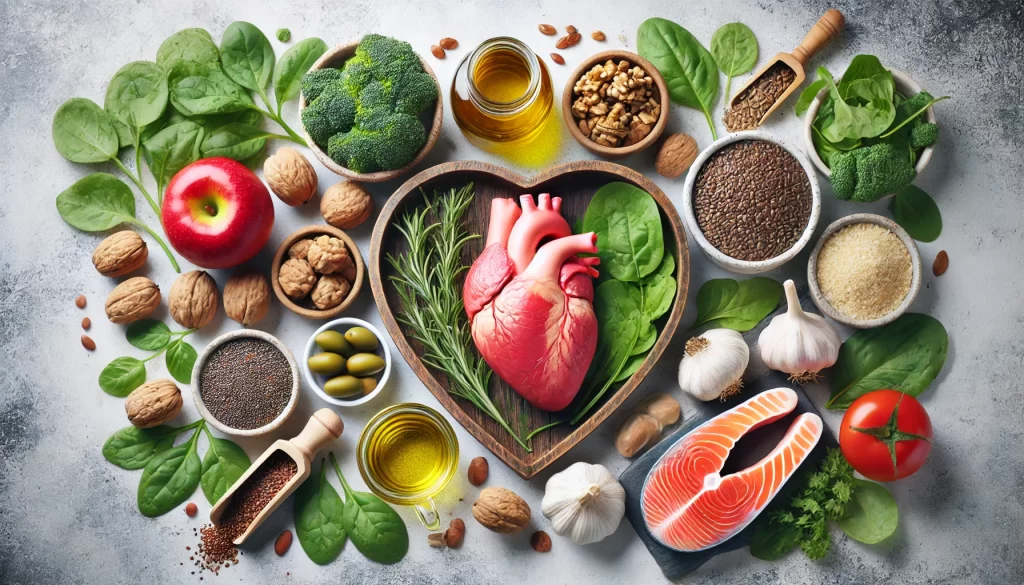
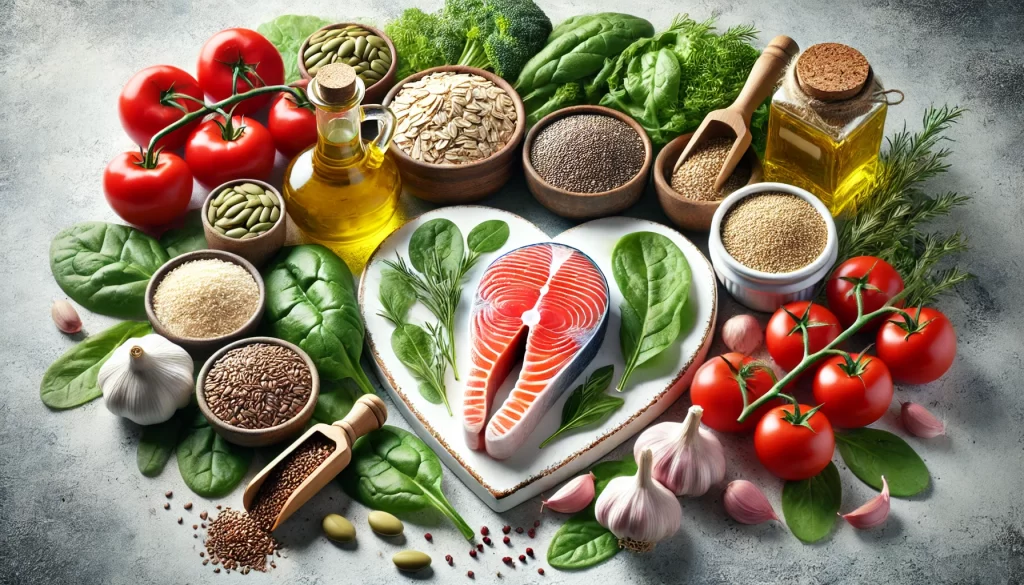
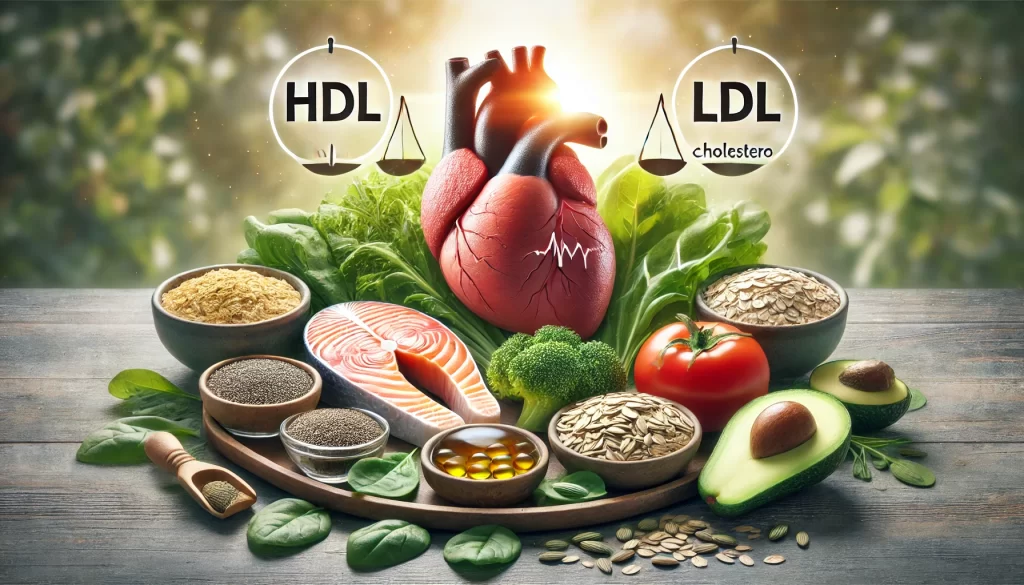
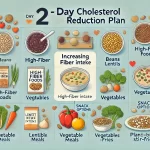
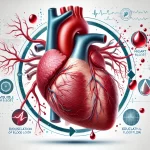

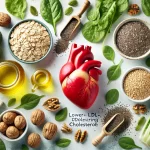
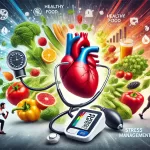
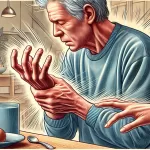
 Next Post
Next Post